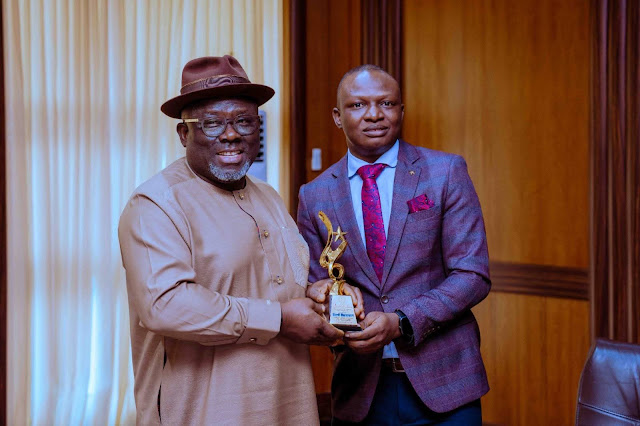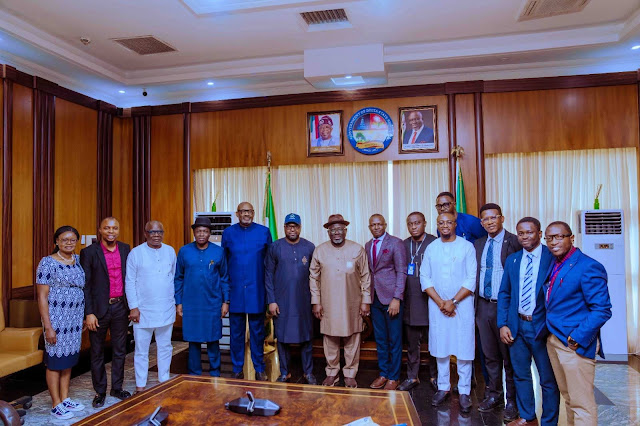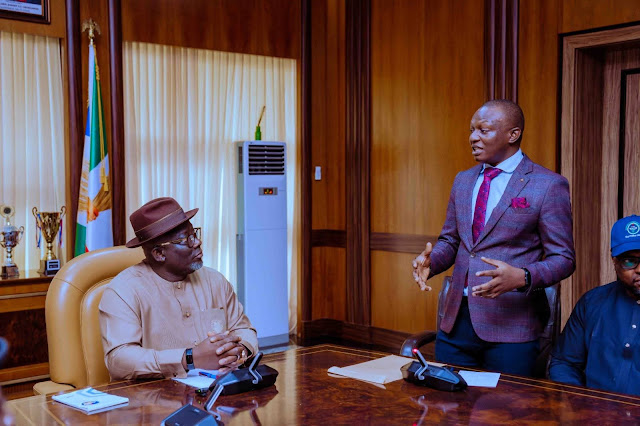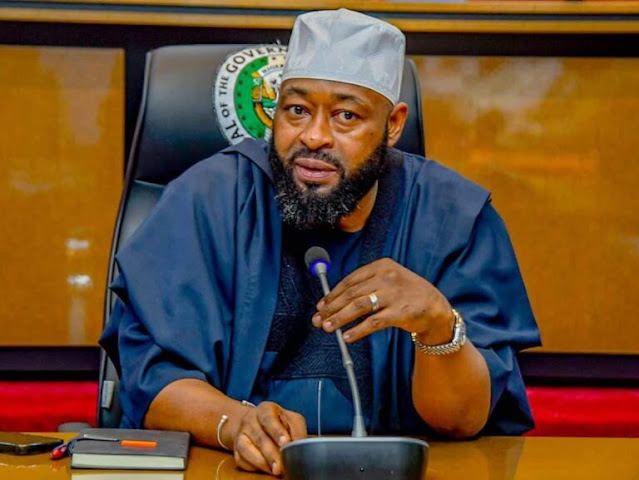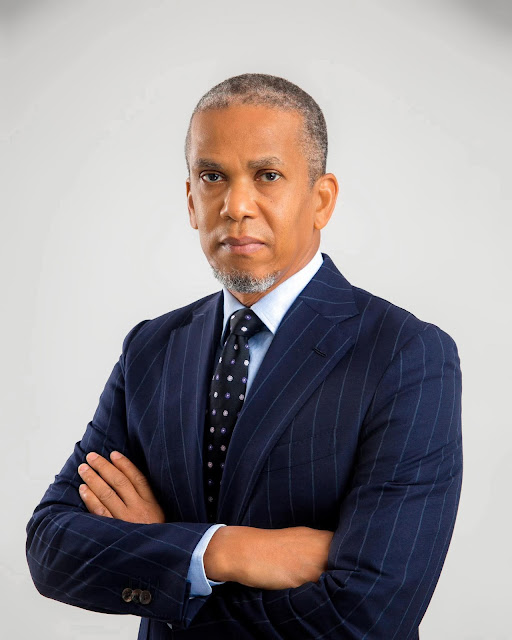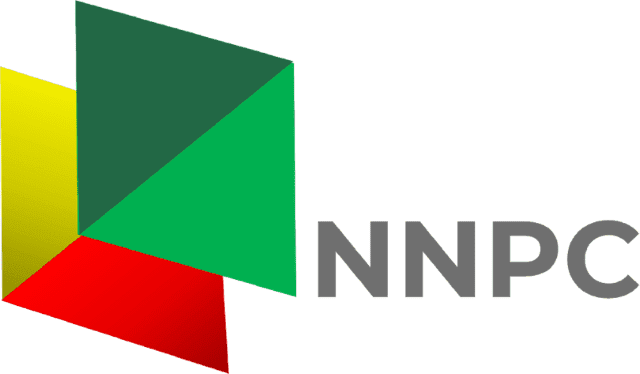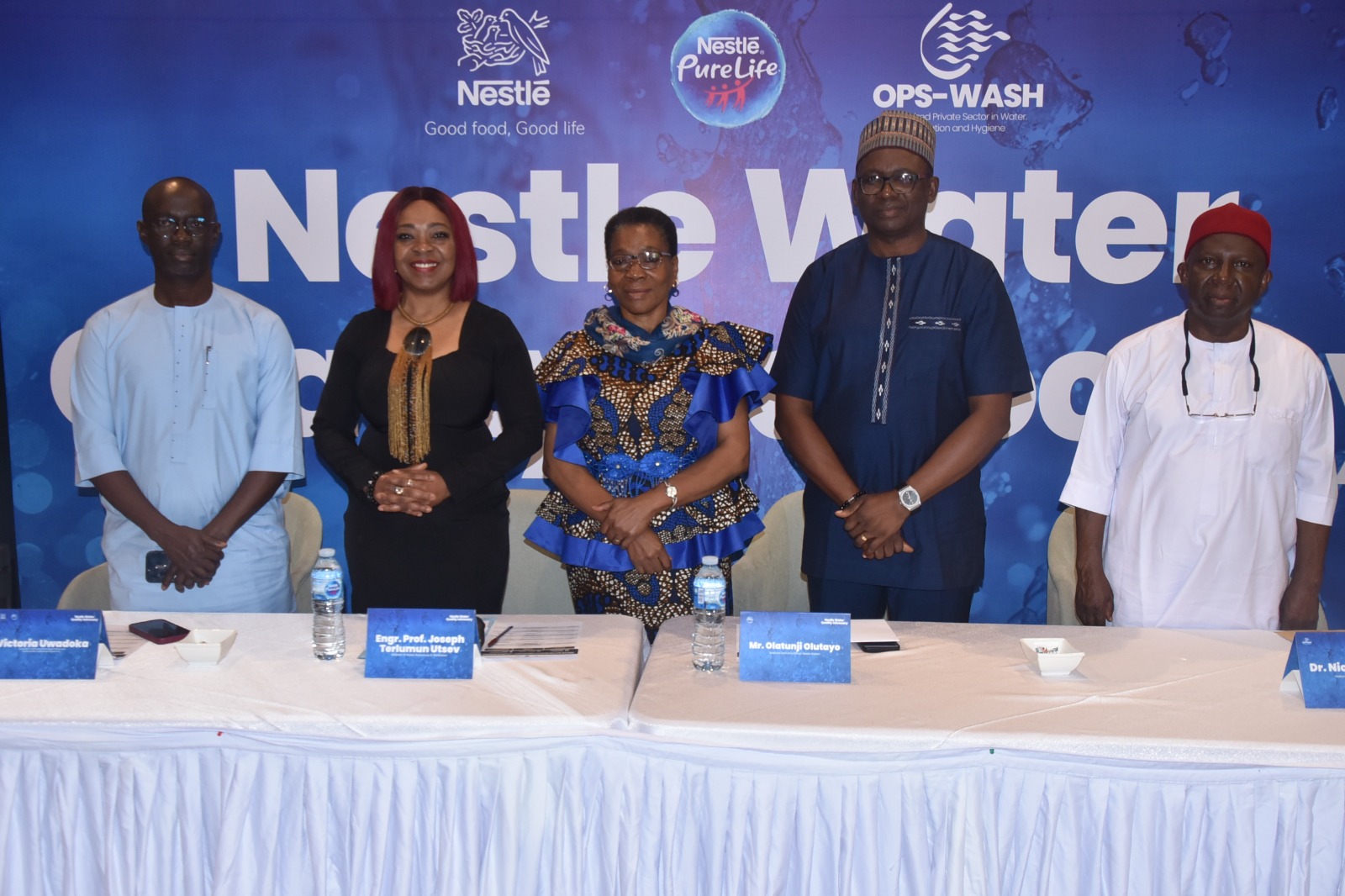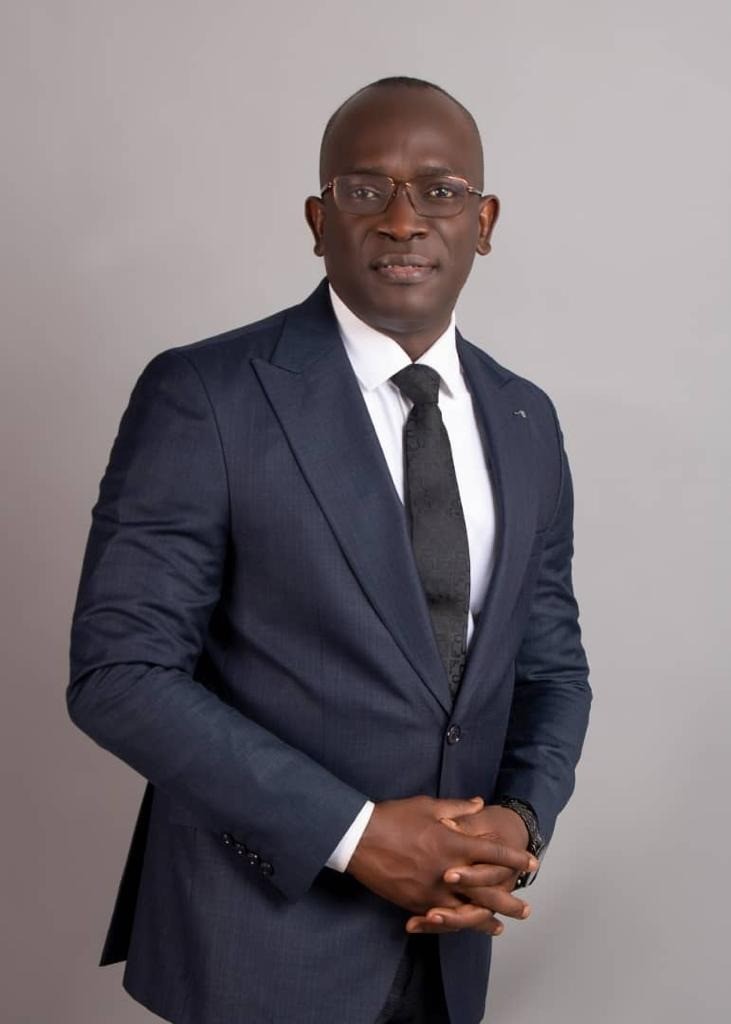In a remarkable acknowledgment of leadership and dedication to healthcare reform, the Nigerian Association of Resident Doctors (NARD) has honored Delta State Governor, Rt. Hon. Sheriff Oborevwori, for his outstanding contributions to the welfare of doctors and the advancement of healthcare delivery in Delta State. This recognition, marked by the presentation of an Award of Excellence, underscores the governor’s transformative policies and investments in the state’s medical sector, positioning Delta as a model for other states in Nigeria. The accolade was presented during a courtesy visit by NARD’s leadership to the Government House in Asaba on Tuesday, September 2, 2025, highlighting a pivotal moment in the state’s healthcare journey.
This article provides a comprehensive exploration of Governor Oborevwori’s healthcare initiatives, the significance of NARD’s recognition, the impact of these efforts on Delta’s medical landscape, and the broader implications for Nigeria’s healthcare system. It also delves into the challenges and opportunities ahead, offering a detailed analysis of how Delta’s healthcare reforms could shape the future of medical training and service delivery in the country.
The Context: Healthcare Challenges in Nigeria
Nigeria’s healthcare system has long grappled with systemic challenges, including inadequate funding, outdated infrastructure, brain drain, and poor working conditions for medical professionals. Resident doctors, who form the backbone of the nation’s healthcare delivery, often face delayed salaries, insufficient training resources, and a lack of modern medical equipment. These issues have led to frequent industrial actions by NARD, with strikes becoming a recurring response to unmet demands for better welfare and working conditions.
In this context, Delta State’s achievements under Governor Oborevwori stand out as a beacon of progress. The state has made significant strides in addressing these challenges, prioritizing the welfare of doctors and investing in healthcare infrastructure to improve service delivery. NARD’s recognition of these efforts highlights the governor’s proactive approach and serves as a call to action for other states to emulate Delta’s model.
NARD’s Recognition of Governor Oborevwori
During the courtesy visit to the Government House in Asaba, NARD’s National President, Dr. Tope Osundara, lauded Governor Oborevwori as “a man of honour” for his exemplary leadership in healthcare. The highlight of the visit was the presentation of an Award of Excellence, a testament to the governor’s commitment to advancing medical training and healthcare delivery in Delta State. Dr. Osundara specifically commended the governor for being the first in Nigeria to fully pay the 2025 Medical Residency Training Fund (MRTF) for resident doctors, a landmark achievement that sets Delta apart from other states.
The MRTF, a critical component of medical residency programs, provides funding for training, examinations, and professional development for resident doctors. Dr. Osundara emphasized the significance of this initiative, stating, “The essence of this MRTF is to equip resident doctors with the knowledge and resources needed to excel in their examinations and training. When they return, they come back with quality, and the people benefit from quality healthcare.” He noted that many states are still struggling to implement the MRTF, with some unable to meet even basic salary obligations for doctors. Delta’s ability to fully fund the program demonstrates a level of foresight and commitment that has resonated with the medical community.
In addition to the MRTF, Dr. Osundara praised the state government for implementing acculturation allowances and granting tax rebates to doctors, measures that enhance their financial well-being and incentivize retention. The governor’s investments in medical infrastructure, including the provision of four CT scanners and an MRI machine in each of Delta’s three senatorial districts, were also highlighted as a game-changer. “Lagos, with all its glory, has not done up to what I have seen and heard about in Delta. For a state-owned hospital to have these equipment, Your Excellency, you deserve to be praised,” Osundara remarked, underscoring the scale of Delta’s achievements.
The NARD leader also acknowledged the state’s efforts to improve hospital access roads through a partnership with Julius Berger, a leading construction company. These infrastructure upgrades have enhanced accessibility to healthcare facilities, ensuring that patients can reach hospitals more easily, particularly in rural areas. Collectively, these initiatives reflect a holistic approach to healthcare reform, addressing both human and infrastructural needs.
Governor Oborevwori’s Response
In his response to the NARD delegation, Governor Oborevwori expressed gratitude for the recognition and reaffirmed his administration’s commitment to the healthcare sector. He described the visit as timely, noting that it coincided with NARD’s recent warning of a potential nationwide strike due to unresolved issues with the Federal Government and other states. The governor emphasized that Delta had fulfilled its obligations to resident doctors, stating, “My administration is among the first three states in the country to fully pay medical residents. We are also the first to pay all resident doctors irrespective of their place of assignment. We have held up our part of the bargain, and I believe Delta should be exempted from the warning strike.”
Governor Oborevwori highlighted the cordial relationship between his administration and the medical community, noting that every request from the Ministry of Health that reached his desk had been approved. This responsiveness has fostered a collaborative environment, enabling the state to address the needs of doctors and healthcare facilities promptly. The governor also addressed ongoing challenges, such as the accommodation shortage at the Delta State University Teaching Hospital (DELSUTH) in Oghara. He assured the delegation that funding was not the issue, but rather contractor compliance, and promised swift action to resolve the matter.
A key theme in the governor’s remarks was his confidence in the capacity of Nigerian doctors. He argued that with the right tools and environment, Nigerian medical professionals could excel domestically, reducing the brain drain that sees many doctors seeking opportunities abroad. “Our doctors are world-class. What they need are modern tools. If we provide the necessary equipment, they will excel here instead of leaving to work as medical assistants overseas,” he said. This vision underscores the governor’s commitment to creating a conducive environment for medical practice in Delta State.
The Broader Impact of Delta’s Healthcare Reforms
Governor Oborevwori’s healthcare initiatives have far-reaching implications for Delta State and Nigeria as a whole. By prioritizing the welfare of doctors and investing in medical infrastructure, the state is addressing some of the most pressing challenges in Nigeria’s healthcare system. Below are some of the key impacts of these reforms:
Improved Healthcare Delivery: The provision of advanced diagnostic tools, such as CT scanners and MRI machines, enhances the capacity of hospitals to diagnose and treat complex conditions. This reduces the need for patients to seek treatment abroad, saving costs and boosting confidence in the local healthcare system.
Enhanced Medical Training: The full payment of the MRTF ensures that resident doctors have access to the resources needed for high-quality training. This, in turn, produces more skilled specialists who can provide advanced care to patients, elevating the overall standard of healthcare in Delta.
Retention of Medical Talent: By offering acculturation allowances, tax rebates, and improved working conditions, Delta is creating an attractive environment for doctors. This reduces the incentive for medical professionals to migrate abroad, addressing the brain drain that has plagued Nigeria’s healthcare sector.
Improved Access to Healthcare: The upgrades to hospital access roads, facilitated through the partnership with Julius Berger, ensure that patients, particularly in rural areas, can reach healthcare facilities more easily. This is a critical step toward achieving equitable access to healthcare across Delta State.
Economic and Social Benefits: A robust healthcare system contributes to economic development by reducing morbidity and mortality, improving workforce productivity, and attracting medical tourism. Additionally, the focus on community infrastructure, such as roads, enhances the quality of life for residents.
Challenges and Opportunities
While Delta’s healthcare reforms have been widely praised, their implementation is not without challenges. Some of the key hurdles include:
Sustainability of Funding: The ambitious investments in healthcare infrastructure and doctor welfare require significant financial resources. Ensuring the sustainability of these initiatives will be critical to their long-term success, particularly in the face of competing budgetary demands.
Contractor Compliance: As noted by Governor Oborevwori, issues with contractor compliance have delayed projects such as the accommodation upgrades at DELSUTH. Addressing these bottlenecks will require robust oversight and accountability mechanisms.
Scaling Up Infrastructure: While the provision of CT scanners and MRI machines is a significant achievement, ensuring that these facilities are maintained and accessible to all residents, particularly in remote areas, will be a challenge.
Nationwide Disparities: Delta’s success highlights the disparities between states in Nigeria’s healthcare system. Other states may struggle to replicate Delta’s model due to funding constraints or lack of political will, potentially exacerbating inequalities in healthcare access.
Despite these challenges, the reforms present significant opportunities for Delta State and Nigeria. By setting a high standard for healthcare delivery, Delta can serve as a model for other states, encouraging them to prioritize investments in healthcare infrastructure and human resources. Additionally, the state’s focus on medical training could position it as a hub for medical education and research, attracting talent and investment.
Stakeholder Reactions
The recognition of Governor Oborevwori by NARD has elicited positive reactions from various stakeholders. The Nigerian Medical Association (NMA) has commended the governor for his proactive approach, noting that Delta’s investments in healthcare could serve as a blueprint for other states. Patients and community leaders in Delta have also expressed appreciation for the improved access to medical facilities, particularly the advanced diagnostic tools now available in state hospitals.
However, some stakeholders have called for greater transparency in the allocation of healthcare funds to ensure that resources are used efficiently. Civil society organizations have urged the government to engage communities in the planning and implementation of healthcare projects to ensure that they address local needs effectively.
The Way Forward
Governor Oborevwori’s healthcare reforms represent a bold step toward transforming Delta State’s medical landscape. To build on this success, the state government must focus on several key priorities:
Sustained Investment: Continued funding for healthcare infrastructure, training, and doctor welfare is essential to maintain the momentum of these reforms. The government should explore public-private partnerships to supplement budgetary allocations.
Capacity Building: Ongoing training programs for doctors and other healthcare workers will ensure that they are equipped to utilize the new equipment and deliver high-quality care.
Community Engagement: Engaging communities in the planning and monitoring of healthcare projects will enhance transparency and ensure that interventions are tailored to local needs.
Monitoring and Evaluation: Establishing a robust framework to monitor and evaluate the impact of healthcare reforms will help identify areas for improvement and ensure accountability.
Advocacy for National Reforms: Delta’s success could inspire a broader push for healthcare reform at the national level. The state government should advocate for policies that address systemic issues in Nigeria’s healthcare system, such as inadequate funding and brain drain.
Conclusion
The recognition of Governor Sheriff Oborevwori by the Nigerian Association of Resident Doctors is a testament to his administration’s transformative impact on Delta State’s healthcare sector. By fully paying the 2025 Medical Residency Training Fund, providing advanced medical equipment, and improving hospital access roads, the governor has demonstrated a commitment to improving the welfare of doctors and the quality of healthcare delivery. These efforts have positioned Delta as a leader in healthcare reform, setting a standard for other states to follow.
As Nigeria grapples with longstanding challenges in its healthcare system, Delta’s achievements offer hope and a model for progress. By addressing challenges such as funding sustainability and contractor compliance, and leveraging opportunities for community engagement and capacity building, Delta can continue to lead the way in healthcare innovation. Governor Oborevwori’s vision of empowering Nigerian doctors with modern tools and creating a conducive environment for medical practice has the potential to transform not only Delta but also the broader Nigerian healthcare landscape.


